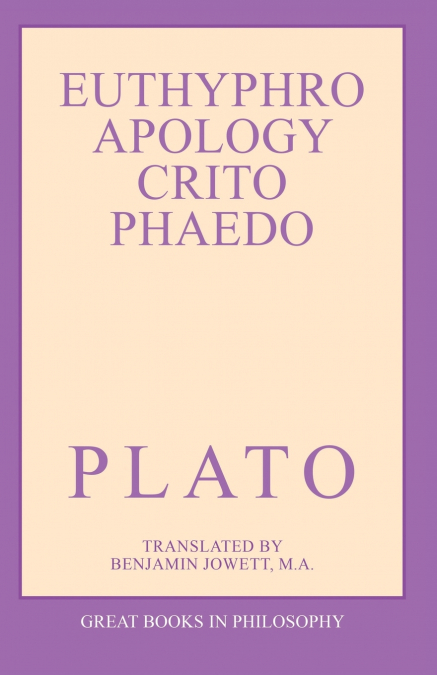
Plato
As the indisputable father of Western philosophy, Socrates stands as the archetype of free inquiry and intellectual honesty throughout history. He dared to explore the minds of men, to analyze the content of cherished beliefs, and to distinguish knowledge and truth from opinion. This philosophical gadfly irritated the people of Athens, who tried him for corrupting their youth, and subsequently sentenced him to death for his 'crime.'In these four short works by Plato, we come to experience the full range of Socrates’ penetrating mind. In the Euthyphro, Socrates searches after the truth about the nature of piety, even as he makes his way to Athens to answer an indictment leveled against him.The Apology recounts Socrates’ attempt to defend himself against the charge of impiety. Once condemned, Socrates finds himself imprisoned to await death.The Crito captures his views on his relationship with the state and what each has a right to expect from the other.Finally, the Phaedo recalls the death scene as Socrates discusses the nature of the soul and immortality just before succumbing to the hemlock.